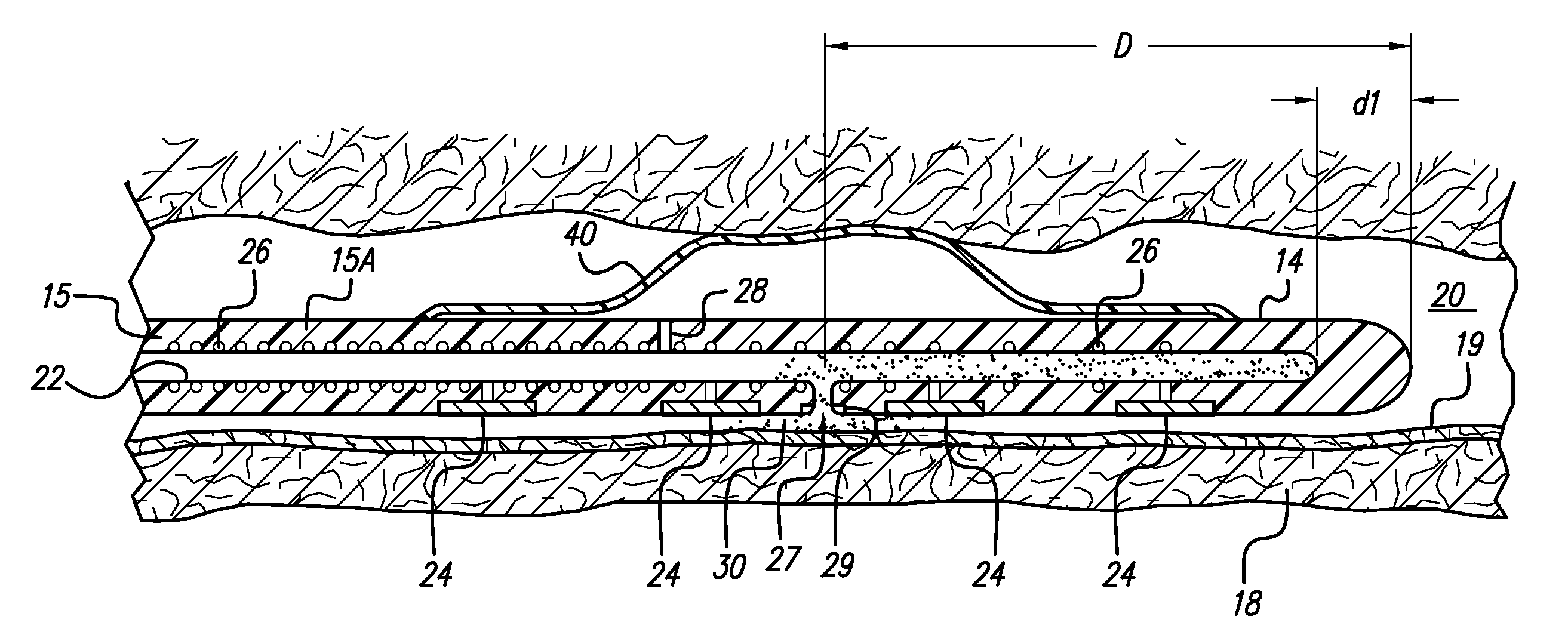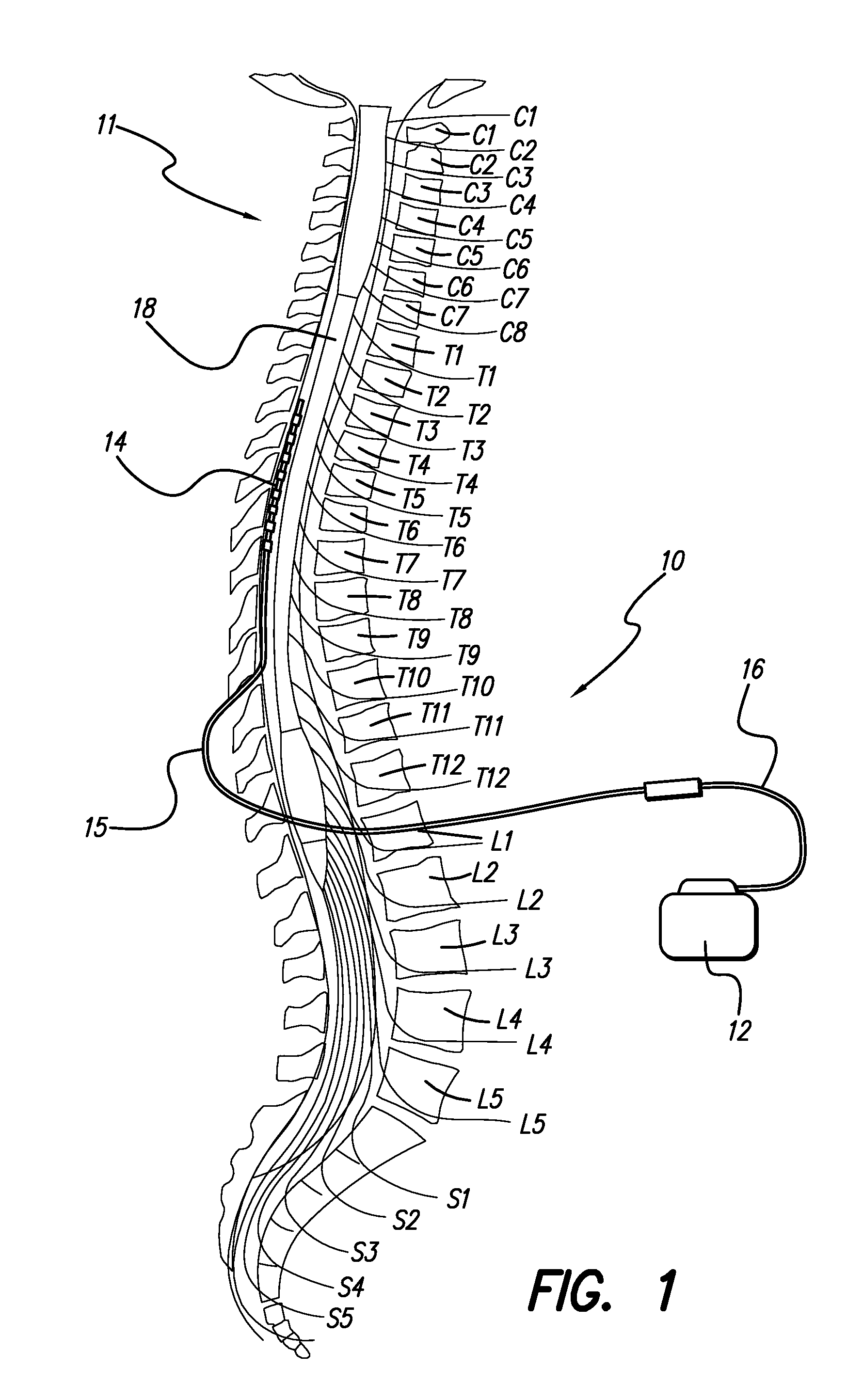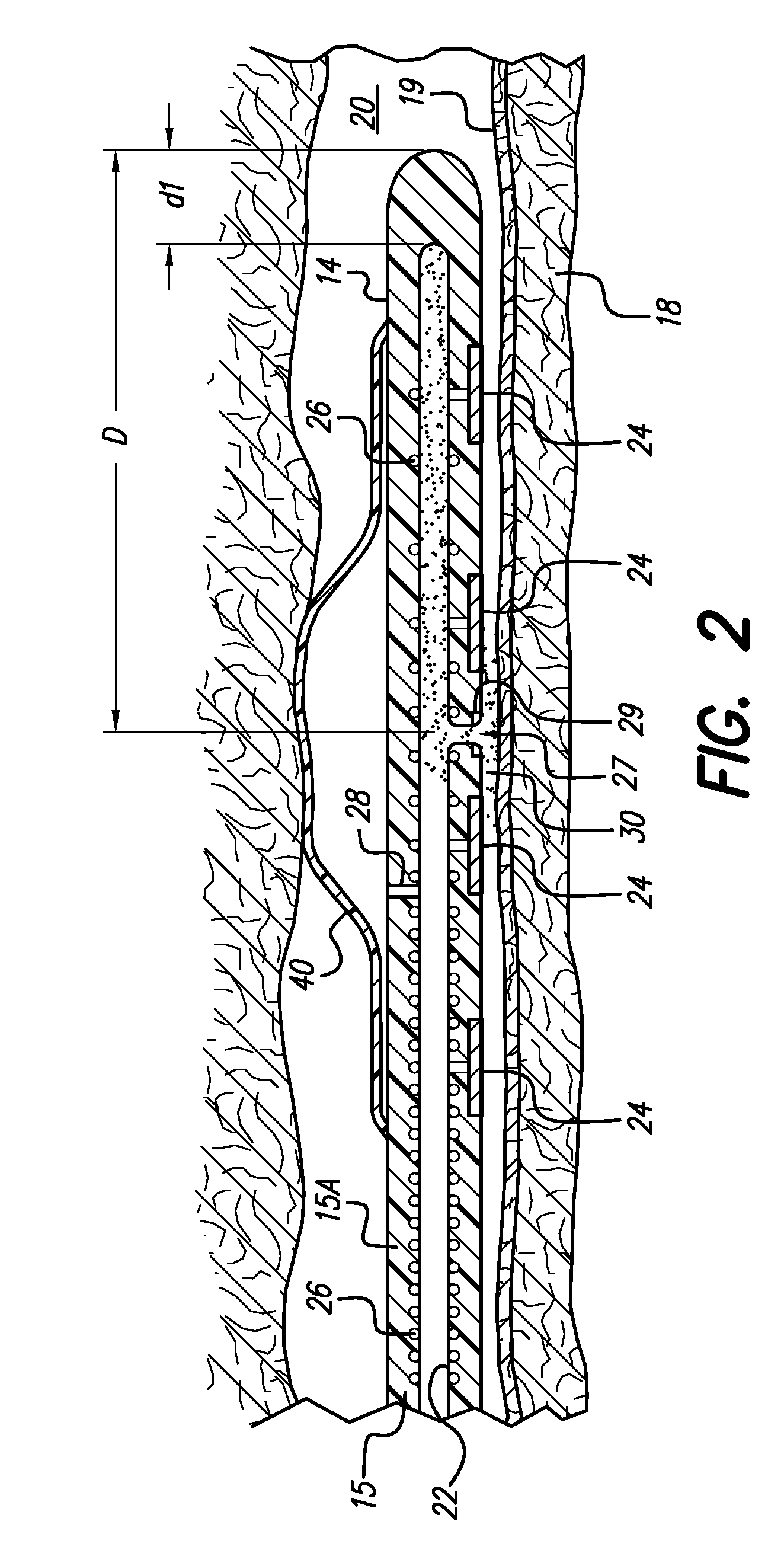Neural stimulation lead fixation
a technology of neural stimulation and lead fixation, which is applied in the direction of internal electrodes, balloon catheters, therapy, etc., can solve the problems of inability to teach the use of safety valves to release, inability to perform the intended function of the scs system, and multi-fold ramifications for patients
- Summary
- Abstract
- Description
- Claims
- Application Information
AI Technical Summary
Benefits of technology
Problems solved by technology
Method used
Image
Examples
Embodiment Construction
[0029]The following description is of the best mode presently contemplated for carrying out the invention. This description is not to be taken in a limiting sense, but is made merely for the purpose of describing the general principles of the invention. The scope of the invention should be determined with reference to the claims.
[0030]At the outset, it should be noted that the present invention is directed to the fixation of implantable leads, such as neural stimulation leads or cardiac leads, and more particularly to the fixation of electrodes, or electrode arrays, attached to neural stimulation leads or cardiac leads so that such electrodes, or electrode arrays, remain in a desired position relative to the tissue that is to be stimulated. For purposes of the present invention, the terms “lead” and “electrode” and “electrode array” may thus be used interchangeably, unless the context clearly indicates otherwise. That is, while the narrow purpose of the invention is to fix the elect...
PUM
 Login to View More
Login to View More Abstract
Description
Claims
Application Information
 Login to View More
Login to View More - R&D
- Intellectual Property
- Life Sciences
- Materials
- Tech Scout
- Unparalleled Data Quality
- Higher Quality Content
- 60% Fewer Hallucinations
Browse by: Latest US Patents, China's latest patents, Technical Efficacy Thesaurus, Application Domain, Technology Topic, Popular Technical Reports.
© 2025 PatSnap. All rights reserved.Legal|Privacy policy|Modern Slavery Act Transparency Statement|Sitemap|About US| Contact US: help@patsnap.com



